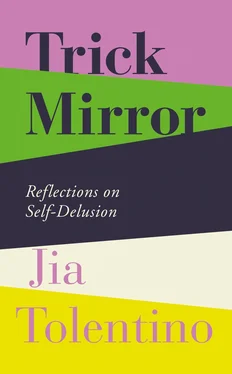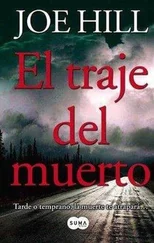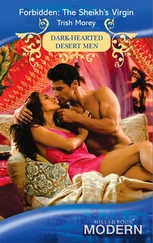I had left for Puerto Rico during a period in which my parents were embroiled in a mess of financial and personal trouble, the full extent of which was revealed to me shortly before I left. I think that was ultimately why they let me go to Puerto Rico: they must have understood, as I argued, that I could use a break. We had always moved up and down through the middle class, but my parents had protected and prioritized me. They kept me in private school, often on scholarship, and they paid for gymnastics, and they took me to the used bookstore whenever I asked. This was different—house-being-repossessed different. I knew that I would need to be financially independent as soon as I graduated from high school, and that from that point forward, it would be up to me to find with my own resources the middle-class stability they had worked so hard for and then lost.
This was of course part of my motivation to win Girls v. Boys . I had gotten into Yale early, and figured that my portion of the prize money would help me figure out how to deal with things like student loans and health insurance, help me move to New Haven, give me some guardrails as I slid into the world. Back in Texas, I felt unmoored from the plan, and took my guidance counselor’s last-minute recommendation to apply for a full merit scholarship to the University of Virginia. I did the interview while still on a high from Puerto Rico: under-clothed, blisteringly self-interested, blabbering on about kayaks and mayonnaise. After another round, I got the scholarship and accepted it.
When I talked to Jess, the producer, she told me that my mom had called her up, in the months after the show aired, and asked her to persuade me to go to Yale. How, my mom had said, could she turn down that kind of prestige? Our family situation hovered in the background, as did, I think, my parents’ upbringings. They had both attended elite private schools in Manila, and they retained a faith in the transformative power of institutions, a faith I shared until I abruptly did not. Losing the reality show marked some sort of transition: I started to feel that the future was intractably unpredictable, and that my need for money cut deeper than I’d imagined, and that there were worse things than making decisions based on whatever seemed like the most fun.
The cast assembles on a colorful stage set in Las Vegas to watch clips. Everyone looks a little different: ACEhas pink hair, PARIShas a sharp bob, KRYSTALgot her braces off. DEMIANtells JIAher no-making-out rule was stupid. “I’m sorry I have morals ,” JIAreplies. CORYis indignant, finding out how long KELLEYplayed him. “I’m an honest person!” he says. “And I’m a really good liar,” KELLEYsays, breaking into her wide Britney smile.
KRYSTALwatches DEMIANsaying he’d like to hook up with her but not talk to her. Is she mad? “I think it’s hilarious,” KRYSTALsays. PARISwatches JIAsaying she’s using her boobs for attention. “I was using my boobs for attention,” PARISsays brightly. JIA, who has gotten chubby, watches a clip of herself on the first night, saying she’d never make out with DEMIAN, and then a clip of them making out on the last day.
The cast is asked if they’d do it again. “In a heartbeat,” KRYSTALsays. “Puerto Rico was the best experience of my life—I think it’ll be pretty hard to top,” KELLEYsays. Credits roll over footage of the cast on the Strip, waving goodbye.
Of the eight of us, Ace and I were the only ones who didn’t show up in Puerto Rico hoping to jump-start a career on camera. We had come into contact with the show haphazardly—Ace was flagged down after doing a focus group for Bayer. Everyone else had seen a casting call and sent in a tape. Paris had actually been cast on Girls v. Boys: Hawaii, but she was deemed too young by the network. “I one hundred percent wanted to be an actress back then,” she said. “I wanted to be famous. I thought that would show the people who were mean to me—like, I’m Paris, and I’m important now.”
While we were taping the show, Kelley had the most momentum. She was a BMX champion, she had starred in her own “Got Milk?” ad, and she had filmed a couple of promos for another Noggin venture. “To be honest,” Kelley said, on the phone, “I grew up so poor with my single mom and two brothers that when this all started happening, I thought—okay, this is my way out.” She did a little modeling after the show, but her managers didn’t want her to put Girls v. Boys on her résumé, and it was hard to convince people that she could act, coming out of reality TV. When she moved to Los Angeles after college, she found out that the secret to creative success in your twenties was, often, already being rich. She pivoted to real estate. “It’s a confidence game, a lot of bullshitting,” she told me. “I did really well at it. It’s the exact same thing.”
Krystal, who’s had bit parts on Parks and Recreation and 2 Broke Girls, ended up being the person who stuck to it. She told me that she’s known she wanted to be in front of the camera since she was two years old. After our show aired, one weekend she and Ryder went to a mall in San Francisco wearing their Girls v. Boys sweatshirts. There was a Degrassi meet and greet scheduled, and our show aired right before Degrassi —they were hoping to get mobbed by Noggin fans, and they were. (The only time I was ever recognized was also at a mall—I worked at a Hollister in Houston over the holiday break in 2005, and was spotted by a couple of preteen girls.) Kelley told me she got recognized from the show when she was going through sorority rush at Arizona State. Paris was recognized, years later, at a frozen yogurt shop in Portland. Cory remembered taking photos with a crowd of teenage fans at an H&M. “I loved it,” he said. “You know, I always wanted that fifteen minutes of fame.”
“I wanted to be famous,” said Demian, “because to me, fame equaled money. But now I’m like, fuck that. You see these guys who are famous for some bullshit personality stuff—who’s the one who went to the Japanese suicide forest? Logan Paul. If we were younger, one of us would have definitely tried to be YouTube famous.” He sighed. “I would hate to be a Logan Paul.” He had filmed a reality show before Girls v. Boys, he reminded me—a show called Endurance, on Discovery Kids. There, too, all the other contestants had wanted to be actors. “That’s our culture,” he said. “I watched TV all the time when I was a kid. I thought, you barely need to do anything. I could do that shit.”
“So you really came to Puerto Rico wanting to be famous?” I asked, pacing around my hotel room. Twitter was open on my laptop. In the end—and maybe not watching the show for so long was my attempt to keep from having to admit this—it had been very, very easy to get used to looking at my face on a screen.
“We all wanted to be famous,” Demian said. “Except you.”
“I actually said that?” I asked.
“I remember we were all sitting around one day talking about it,” he said. “And you were the only one who was really not interested. You said you would only ever want to be famous for a reason. You were like, ‘I don’t want to get famous for this bullshit. I want to get famous for writing a book.’”
The ideal woman has always been generic. I bet you can picture the version of her that runs the show today. She’s of indeterminate age but resolutely youthful presentation. She’s got glossy hair and the clean, shameless expression of a person who believes she was made to be looked at. She is often luxuriating when you see her—on remote beaches, under stars in the desert, across a carefully styled table, surrounded by beautiful possessions or photogenic friends. Showcasing herself at leisure is either the bulk of her work or an essential part of it; in this, she is not so unusual—for many people today, especially for women, packaging and broadcasting your image is a readily monetizable skill. She has a personal brand, and probably a boyfriend or husband: he is the physical realization of her constant, unseen audience, reaffirming her status as an interesting subject, a worthy object, a self-generating spectacle with a viewership attached.
Читать дальше












